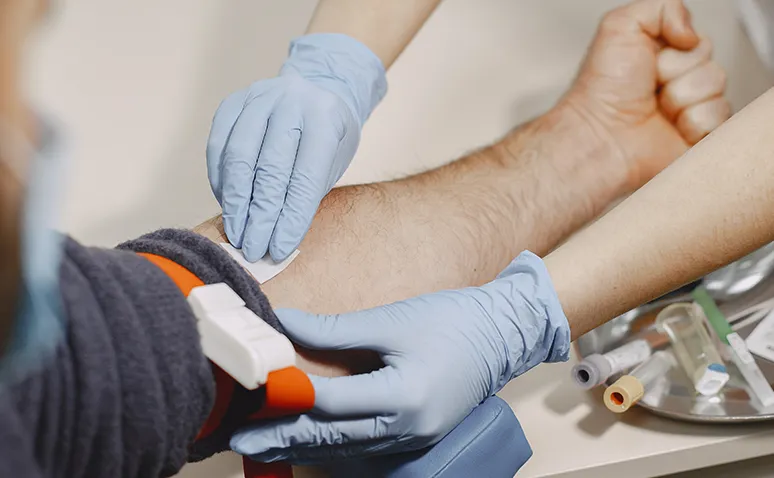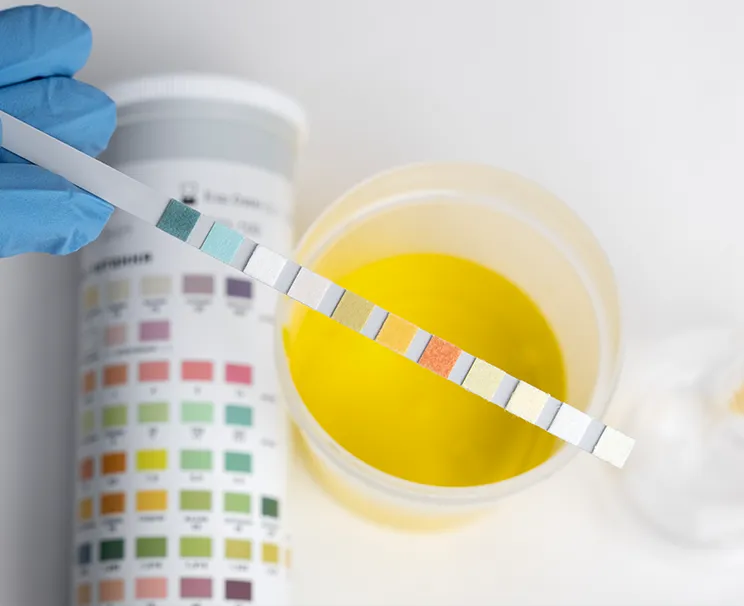
Allergy test prices vary depending on the type of test and the location where it is performed. The primary factors determining the prices include the laboratory where the test is conducted, the testing methods used, and the experience of the healthcare professionals administering the test.
Allergy test prices are also directly related to the scope of the individual’s health insurance coverage. Additionally, the scope of the test can be a determining factor. Detailed blood tests may be more expensive. Therefore, prices are shaped according to the individual’s needs. For detailed information, laboratories can be contacted.
Types of Allergy Tests and Their Characteristics

Small amounts of various allergens are placed on the skin, and then a small scratch or puncture is made on the skin surface to allow the allergens to penetrate under the skin. The skin is observed for redness or swelling, which indicates an allergic reaction.
This test measures the levels of IgE antibodies specific to certain allergens in the blood. A blood sample is taken from the patient and analyzed in a laboratory. Elevated IgE levels may indicate a sensitivity to a specific allergen.
Used to identify delayed allergic reactions, such as contact dermatitis. Strips containing allergens are applied to the skin and removed after 48 hours. Reactions are evaluated within 72-96 hours. Redness, blisters, or other reactions are observed.
A test where the body’s response to a specific allergen is directly observed. The individual is exposed to allergenic substances in a controlled environment. This can be done orally, through the nose, eyes, or respiratory tract. Symptoms and their severity are assessed during the test.
A test used to detect food allergies by removing and reintroducing certain foods from the diet. Suspected food items are eliminated from the diet for a specific period and then reintroduced to observe reactions. Any reaction to the food is evaluated.
Molecular Allergy Test Price
Molecular allergy testing aims to identify specific proteins causing allergic reactions, providing more sensitive and specific results. It is particularly used to determine which substance triggers a reaction in complex allergy cases. This test offers a detailed analysis of common allergens like food allergies or pollen. For example, it can determine if a person reacts to a specific protein, such as casein, in addition to cow’s milk. It is crucial to distinguish whether the person has lactose intolerance or a genuine milk allergy.
Advantages of Molecular Allergy Testing
One significant advantage of this test is that it provides more accurate results compared to patch tests and traditional allergy tests. Identifying allergens at the molecular level prevents false-positive or false-negative results. It also helps determine treatment options more accurately. The price of molecular allergy testing may vary in 2024 depending on the technologies used and the laboratory conducting the test. However, this test can be costly due to the detailed laboratory analyses required.
Molecular allergy testing is particularly beneficial in complex allergy cases. The benefits of the test include providing precise and detailed results, which can aid in determining appropriate treatments and lifestyle adjustments.
Patch Test Price
The patch test is an important method used to evaluate allergy symptoms, especially in children. This test detects delayed allergic reactions resulting from the skin’s exposure to specific allergens. The test price can vary depending on the number of allergens used, the healthcare institution, and the region. The patch test is preferred to diagnose conditions such as contact dermatitis, especially when diagnosing allergies in infants. Accurate diagnosis and appropriate treatment methods are crucial due to infants’ sensitive skin.
The patch test is an effective method for clearly identifying allergy symptoms in children and infants.
What are the Symptoms of Allergies?
Allergy symptoms can vary depending on the allergen. Common symptoms include runny nose, sneezing, itchy eyes, skin rashes, shortness of breath, cough, and swelling. In some cases, food allergies can cause digestive system issues like nausea, vomiting, or diarrhea. In severe cases, a life-threatening condition called anaphylaxis may occur, requiring immediate medical intervention.
How to Determine if You Have an Allergy?
A series of tests and clinical evaluations are conducted to determine if a person has an allergy. Individuals with allergy symptoms typically undergo diagnostic methods such as skin prick tests, blood tests (IgE), patch tests, or provocation tests. Additionally, the patient’s history and symptoms are considered to identify the potential causes of allergic reactions. A definitive diagnosis is made by evaluating test results and clinical findings together.

What is Included in Allergy Testing?
Allergy tests include various methods such as skin prick tests, blood tests (IgE), patch tests, and provocation tests. The skin prick test involves applying allergens to the skin and observing immediate reactions. The blood test measures specific IgE antibody levels in the blood against allergens. The patch test is used to detect delayed allergic reactions on the skin, while the provocation test is conducted by direct exposure to allergens. These tests help determine which substances cause allergies.
Which Tests Should a Person with Itching Undergo?
A person experiencing itching may undergo various tests to determine if they have an allergy. Initially, a skin prick test can be performed to detect immediate reactions to many common allergens. If skin rash or itching persists for an extended period, a patch test may also be conducted. The blood test (IgE) provides information about the general allergy status by measuring specific antibody levels against allergens. Additionally, a dermatologist or allergy specialist will evaluate the person’s symptoms and recommend appropriate tests.
Should You Be Fasting or Full for an Allergy Test?
The state of fasting or being full is not essential before undergoing an allergy test. However, doctors may specify particular conditions based on specific test types. For example, fasting is not required for blood tests, while for provocation tests, doctors may recommend fasting for a certain period before the test. Therefore, it is crucial to carefully follow the doctor’s instructions before the test. Additionally, informing about the use of medications that may affect allergy tests, such as antihistamines, may be necessary.
How is Allergy Testing Conducted on Children?
Allergy testing in children is commonly conducted using skin prick tests and blood tests. The skin prick test is performed by placing small amounts of allergens on the child’s forearm or back and gently pricking the skin. Results are observed within 15-20 minutes. The blood test (IgE) is used to measure antibody levels against allergens in the child’s blood. These tests are painless and are used to determine children’s allergic sensitivities. It is essential to provide information about the child’s medication use and medical history before the test.











